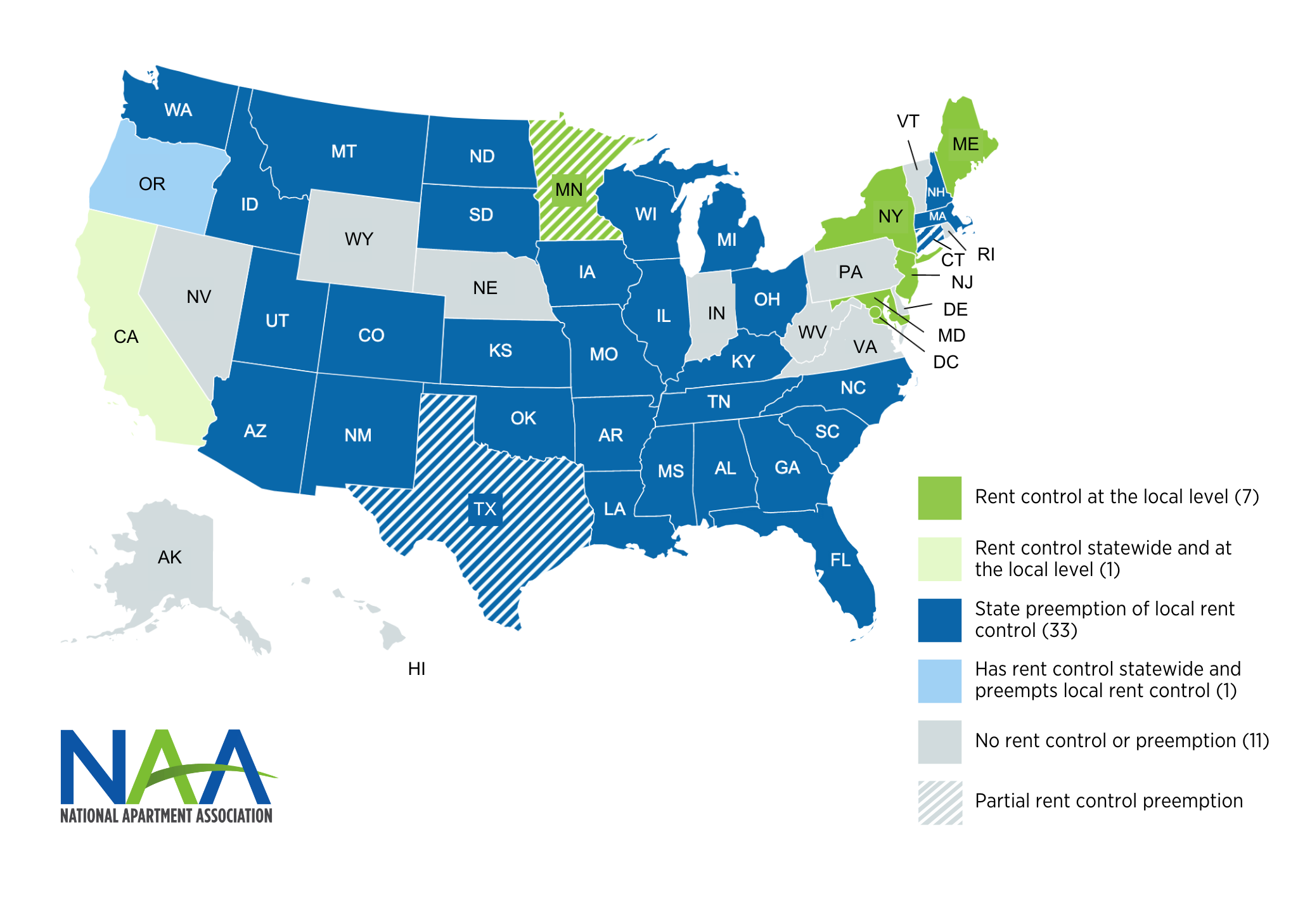Rent Control: Policy Issue
Overview
Rent control is a government-enforced limit on the rents that property owners may charge in private, market rate rental housing. This policy can go by many names, such as rent stabilization, rent freeze, rent caps, and anti-price gouging. Whatever it's called, rent control mandates an artificial cap on rent without monetary investment or compensation by the governing jurisdiction.

Decades of empirical research have shown that these policies distort the housing market by discouraging the development of new rental housing and the maintenance of existing units. With little to no ability to earn a profit, investors will transfer their funding to other non-rent controlled jurisdictions. In practice, these policies have the effect of increasing the cost of all housing by forcing a growing community to compete for fewer units.
NAA Position
Rent control distorts the housing market by acting as a deterrent and disincentive to develop rental housing, and expedites the deterioration of existing housing stock. While done under the guise of preserving affordable housing, the policy hurts the very community it purports to help by limiting accessibility and affordability. NAA opposes all forms of rent regulation as a strategy to respond to affordability concerns.
Rent Control Laws by State

As an Owner or Operator, How Does this Affect My Business?
Currently, 33 states preempt local governments from adopting rent regulation laws while California, the District of Columbia, Maine, Maryland, Minnesota, New Jersey, New York, and Oregon have rent control policies in place at the state or local level.
However, as housing instability and tenant displacement concerns gain more attention, local governments are increasingly pushing back on preemption laws and considering adoption of these restrictions. As of 2024, over 305 local governments have a rent control policy in place.
While each jurisdiction's rent control regime is slightly different, their laws and regulatory frameworks often perform similar functions:
- They establish a local rent board to administer the program, regulate enforcement and even bring criminal charges for non-compliance.
- These boards are often comprised of unelected community members who have little or no industry experience.
- Funding is generally secured through a combination of taxpayer funding and burdensome fees on rental property owners.
- They govern the amount and frequency of rent increases using arbitrary formulas that do not account for business factors or market forces.
- They require an often-lengthy approval process for special assessments to cover repairs or major capital improvements.
- Some rent control policies allow for decontrol of a rent-regulated unit upon vacancy or exceptions for new construction, though several mandate a limited cap on annual rent increases for all units and from one tenancy to the next. This has disastrous effects on the housing industry.
Also, rent control policies are often coupled with just cause eviction measures or other restrictions that severely limit the ability of an owner to manage rental communities effectively.
Contact Information
To learn more about this issue, please contact Nicole Upano, NAA's AVP of Housing Policy and Regulatory Affairs.
Related Content

Another Industry Win Against Rent Control

Maryland County Passes 'Landlord Retaliation' Ordinance

Minneapolis City Staff Report Says No to Rent Control

New Affordability Law Closes Rent Control Loophole

Rent Control Marches Onward in 2023


Rent Control Update: Boston, Connecticut and Montana

New Year, New Rent Control Proposals
